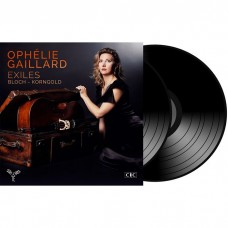|
Throughout the 19th and early 20th centuries, the United States, land of freedom, open to the world, a democracy concerned with human rights, attracted emigrants of all origins. Rightly or wrongly, the young nation, in full economic expansion, embodied a land of redemption for the composers brought together by Ophelie Gaillard.
After Alvorada, her globe-trotting cello leads us in the footsteps of Bloch, Korngold, Prokofiev, Chava Alberstein and Giora Feidmann, singing their exile, whether suffered or deliberately chosen. She makes us vibrate to the sound of a film score (Korngold's Concerto), a prayer (From Jewish Life), an Hebraic narrative (Schelomo), a lullaby, a wedding dance... The spirit of celebration, tenderness, religious meditation: so many facets of daily life and the culture of several generations of Jewish immigrants, related by Ophelie Gaillard's humanistic bow.
1 Ernest BLOCH (1880-1959): Schelomo, Hebraic Rhapsody for Cello and Orchestra
2 Erich KORNGOLD (1897-1957): Concerto in One Movement for Cello and Orchestra in C Op. 37
3 KORNGOLD: Die tote Stadt - Tanzlied des Pierrot, op. 12, Pierrot's aria
4 Sergei PROKOFIEV (1891-1953): Overture on Jewish Themes Op. 34
ERNEST BLOCH, From Jewish Life*
5 Prayer
6 Supplication
7 Jewish Song
8 Wedding Dance
9 CHAVA ALBERSTEIN (1947), Sarah Sings a Lullaby to Little Isaac*
10 Freilechs (trad), Sim Shalom, (Paikov Yeshayahu), Azoy Tantzmen in Odessa (trad)* |
|


